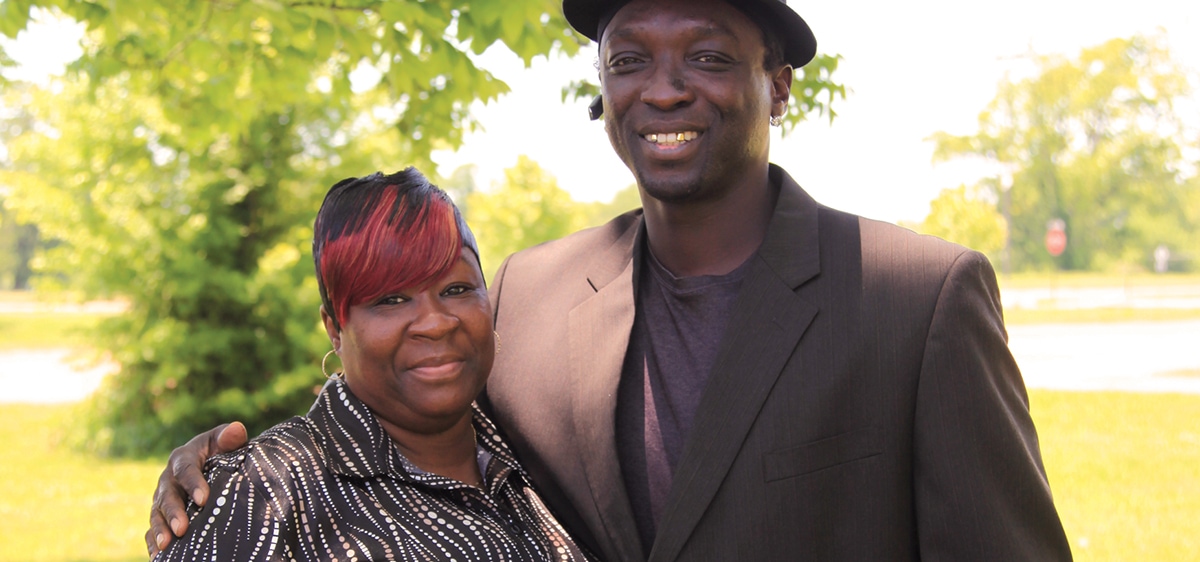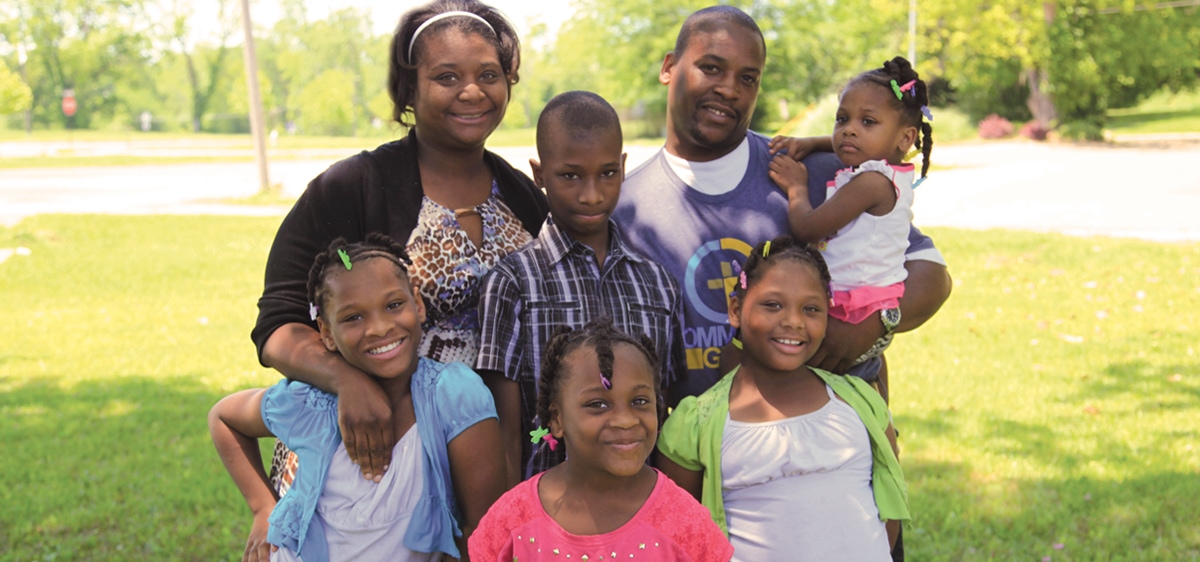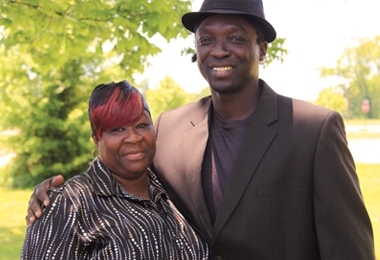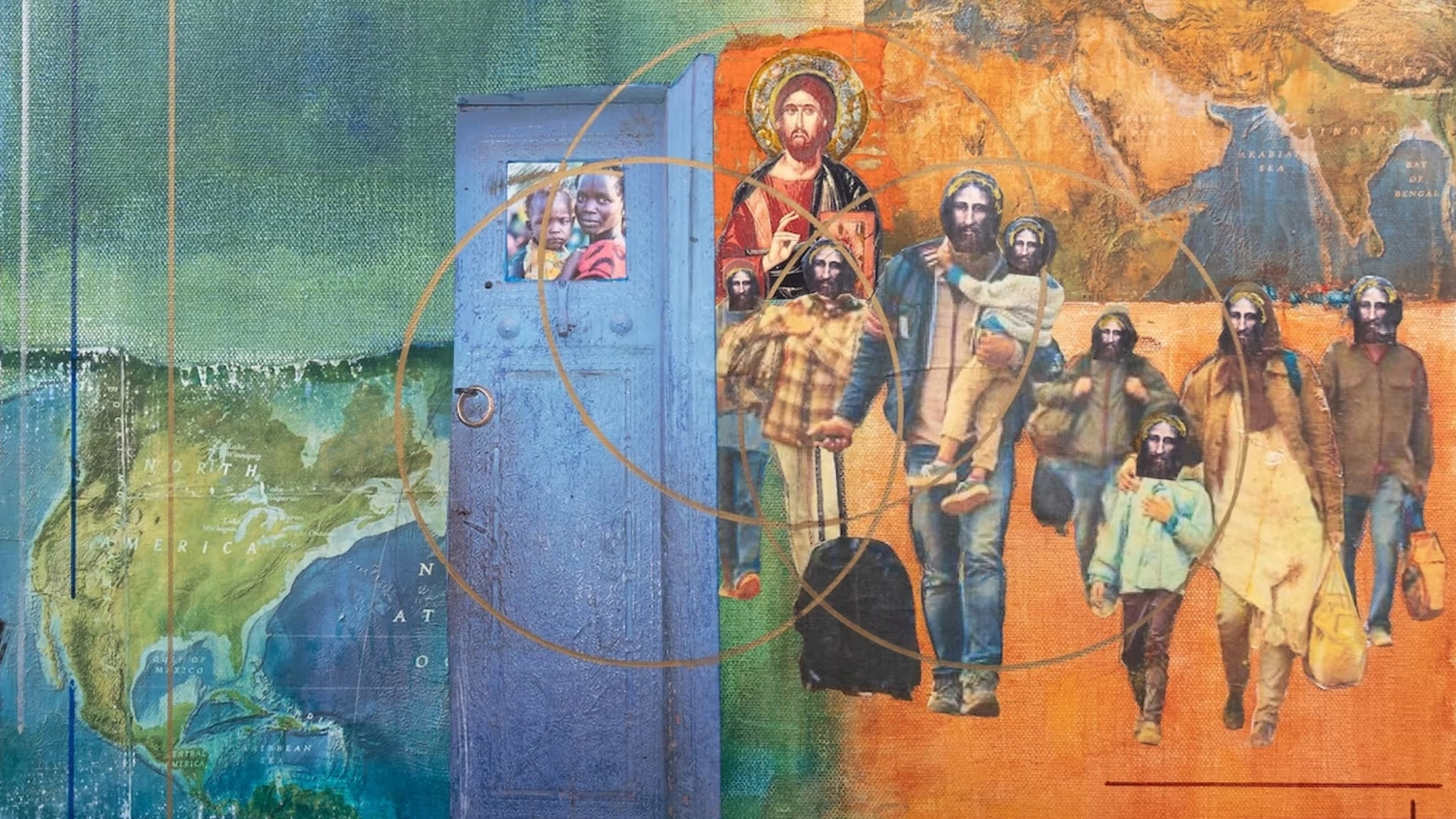[vc_row][vc_column][vc_column_text]

[/vc_column_text][/vc_column][/vc_row][vc_row el_class=”hero-header-text”][vc_column][vc_column_text]
Reimagine That
Partners in Community: Employing Grace
A conversation with John P. Perkins on the church’s call to love our neighbor in practical ways
By Jill Riley | May 29, 2017
[/vc_column_text][/vc_column][/vc_row][vc_row][vc_column][vc_column_text]
When John P. Perkins started Common Ground Church in his hometown of Jackson, Mississippi, it already had a functioning barbershop that employed men who were re-entering society after being incarcerated. Since then the church has launched Common Ground Catering and, most recently, Common Ground Landscaping. The landscaping business employs two church members, Cedrick and James, who had been unable to find work because they had criminal records. The brand-new company already has a contract with thirty different properties. Perkins is brimming with ideas for more entrepreneurial ventures. Recently he spoke with Jill Riley about why he places such a high priority on social enterprise.
Common Ground is engaged in several business ventures—how do you decide what projects to engage? And why is it important for the church to help people find employment?
The Lord sends these people to me. I remember when Cedrick and James walked into my life. I just keep walking with them and now in everything I do, I’m thinking about them and others like them. I believe this is why the church exists.
God gave us work from the very beginning. Before he even completed the process of creating human beings, he gave Adam the opportunity to tend the garden. I believe the best welfare program in the world is a job. The church can be a part of creating that.
I cannot continue to tell the underemployed and the unemployed, “All you need is Jesus,” or, “Just pray about it and everything will be okay.” Prayer is the preparation for action. I believe God is indeed going to move—by moving us into action.
What role does the church play in the lives of those
who are poor?
John Calvin said that the church exists for the poor and will be inherited by them. He wrote, “God takes a more special care of the poor than of others, since they are most exposed to injuries and violence.” Like Calvin, I believe deeply that the poor should benefit from the church’s action. The people in our church and in our community lack resources and opportunity. So I am using my privilege to develop infrastructure and access so that our people can work.
In Leviticus 19:9-10 God speaks to Moses, telling the people of Israel, “When you reap the harvest of your land, do not reap to the very edges of your field or gather the gleanings of your harvest. Do not go over your vineyard a second time or pick up the grapes that have fallen. Leave them for the poor and the alien. I am the Lord your God.” What does that say to us today? What can churches and faith communities do for the poor?
We can create an environment for justice where people do not take everything for themselves. We must develop a situation where there is an infrastructure and environment that leaves room to help people who have a lower bottom line than we do.
Look at how Jesus interacts with wealthy Zaccheaus in Luke 19. You can’t really understand the depths of that story until you look at the previous chapter, where the rich young ruler asks Jesus, “Who can inherit the kingdom?” Jesus’s answer saddens him. His over-prioritization of himself and his money made eternal life forfeit for him. Who can inherit the kingdom of God? The poor will. To not preach this is to not preach the gospel.
How do you interpret Jesus’s call to love our neighbors?
We need to live our life with our neighbors in mind. Leviticus 19 tells us not to do anything that endangers our neighbors. How can we sit idly by and watch our neighbors suffer? Jesus gave food! He fed 5,000 people. He gave fish and bread, or as I tell our people, “crackers and sardines,” to multiple thousands of people.
But we cannot stop there. We can’t just give more canned goods! If that’s all we do, food can become a Band-aid—we need to act.
There is no place in the church for people who deny Christ and his call to care for the poor.
[/vc_column_text][/vc_column][/vc_row][vc_row][vc_column][vc_column_text]

[/vc_column_text][vc_column_text]Since Cedrick was hired by Common Ground Landscaping he is now able to provide for his wife, Demetria, and their children.[/vc_column_text][/vc_column][/vc_row][vc_row][vc_column][vc_column_text]
This article is part four of a four-part series titled:
Reimagine That — Partners in Community
[/vc_column_text][vc_empty_space][/vc_column][/vc_row]














